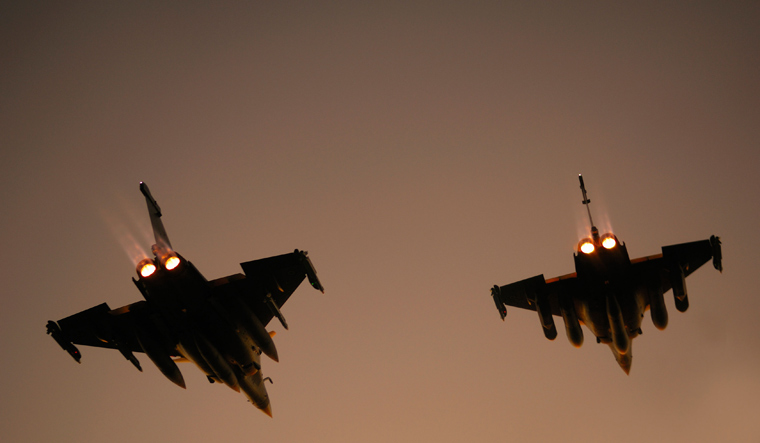
Dassault Rafales on an Evening Flight – Dassault Aviation
With the arrival of operational F-35s to some of the nations that had bought into the program over a decade ago comes a persistent movement against the Joint Strike Fighter program. Some countries have taken a political position on the F-35, and with their future NATO commitments being examined and redesigned based on how they want to contribute to future missions, the F-35 has become the lighting rod to an often complex and political purchase process.
Shading politics into the purchase of fleets of aircraft is nothing new. Often large American giants like Boeing and Lockheed would use financial and political leverage to beat out competitors like Dassault and Saab, even playing some of the most tactical business challenges against its main rival Airbus for contracts that could make or break some of the largest companies in the world. Since the Second World War, the majority of aircraft manufacturers have been put out of production or bought out by larger rivals. Even in today’s climate, the effect of Boeing and Airbus on the market only let in some competition when they do not have a product for that type of market and smaller companies like Embraer and Bombardier can compete in their own product category. Despite the capabilities of very well made aircraft, politics often plays a larger than useful role in the purchase or production of a country’s air fleet.
Politics often goes too far, and this week the connection between the friends of a Prime Minister of India and an exclusive contract with Dassault put the purchase of over three dozen Dassault Rafale fighter planes into question. A company owned by a close associate of the PM that has no expertise in aircraft manufacturing was placed in a strong position by India involving the Rafale fighters, and the opposition and court in India have raised questions about why a close associate to the PM was given this large commercial opportunity. The investigation into the cost of the contract may be established soon in order to decipher the real financial beneficiaries of the purchase agreement.
While India has often chosen a variety or Russian and European aircraft manufacturers to build their air fleet, Canada has had a history of joining NATO initiatives and changing their position and contracts based upon the government of the day. Years ago they had to pay compensation over a cancelled contract on the EH101 rescue helicopters needed to replace their aging and questionably airworthy old Sea Kings. More recently after pulling their CF-18s out of the fight against ISIS after the fight to protect the Yazidi minority on Sinjar Mountain, Canada chose to waffle on their commitment to the F-35 and focus on purchasing F-18’s from Australia that are the same type or aircraft as their CF-18s. While 80s era F-18s will surely put Canadian pilots in danger in future missions due to advanced surface to air system being installed all over the world, the politics of military procurement seems to continue to the detriment of pilots and peacekeepers.
A concerning scandal has taken shape as Canada’s Vice Admiral is accused by the government of leaking documents, related to changing a shipbuilding contract in favour of a company close to the current government. It seems as if Canada might have one of its top military leaders put in jail for calling out a situation similar to what is occurring in India with the Rafale. When these types of contracts and the complex nature of the agreements may place men and women who serve their country in jail for doing what they think is right for their country, it goes beyond politics and leveraging the purchase of new equipment and puts service members and citizens in danger. If it is a new trend, it must not continue.